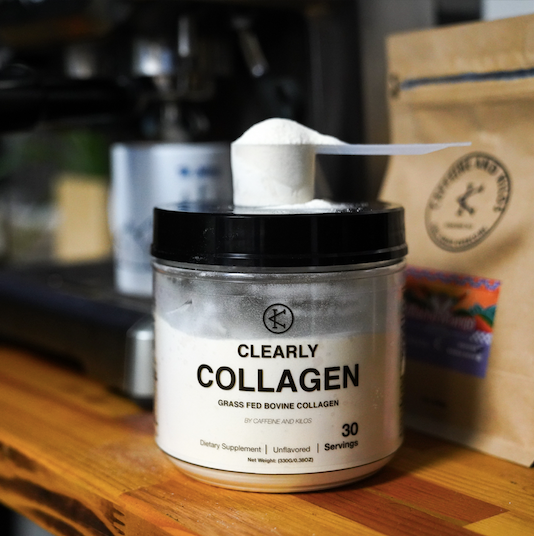
How Collagen Can Work Wonders for Your Sleep
Share
In our relentless pursuit of a healthy lifestyle, we often tend to overlook the role of sleep in maintaining overall well-being. Quality sleep is crucial for physical and mental restoration, yet many of us struggle with sleep-related issues. Enter collagen, an increasingly popular supplement that has gained attention for its potential to not only improve skin health but also promote a restful night's sleep. In this article, we'll explore the fascinating ways in which collagen can benefit your sleep and contribute to your overall health.
What is Collagen?
Collagen is the most abundant protein in the human body, acting as a fundamental building block for various tissues, including skin, bones, tendons, and ligaments. It provides structure and support to the body and plays a vital role in maintaining skin elasticity and joint flexibility.
Types of Collagen
There are several types of collagen, but the ones most commonly found in supplements are Type I, II, and III. Type I collagen is the most prevalent in the body and is responsible for the skin's strength and structure. Type II collagen is found in cartilage, contributing to joint health, while Type III collagen is often associated with skin elasticity.
Collagen and Sleep
While the connection between collagen and sleep might not be immediately evident, research suggests that this remarkable protein can indeed positively impact your sleep patterns. Here's how collagen can work wonders for your sleep:
- Stress Reduction
Stress and anxiety are common culprits behind sleep disturbances. Collagen contains a unique amino acid profile, including glycine, which has calming effects on the nervous system. Glycine acts as an inhibitory neurotransmitter, helping to reduce anxiety and promoting relaxation, which can lead to improved sleep quality.
- Regulation of Sleep Cycles
Collagen's amino acid composition may also influence the body's production of certain neurotransmitters and hormones related to sleep regulation. Studies have shown that glycine supplementation can enhance the quality of sleep by improving sleep latency (time taken to fall asleep) and reducing the number of awakenings during the night.
- Muscle Relaxation
Collagen supplements can potentially help relax muscles and reduce muscle pain or discomfort. This relaxation effect can aid in the prevention of sleep disruptions caused by cramps or discomfort, allowing you to achieve a more restful sleep.
- Joint and Bone Health
As we age, joint discomfort and stiffness can contribute to sleep disturbances. Collagen supplementation has been associated with improved joint health, providing better mobility and reducing pain, thus contributing to better sleep.
- Skin Health and Bedtime Routine
Apart from its internal benefits, collagen can also play a role in your bedtime skincare routine. Collagen is known to promote skin elasticity and hydration. By incorporating collagen-based skincare products, you can nourish your skin, creating a soothing pre-sleep ritual that primes your body and mind for slumber.
Conclusion
Sleep is an essential pillar of good health, and the benefits of collagen extend beyond skin and joint health. By incorporating collagen supplements into your daily routine, you may experience improvements in sleep quality, reduced stress levels, and enhanced relaxation. However, it's important to remember that individual responses to supplements can vary, and it's always best to consult with a healthcare professional before starting any new supplementation regimen.
Remember, a holistic approach to sleep hygiene, including maintaining a consistent sleep schedule, creating a relaxing bedtime routine, and addressing any underlying health issues, is crucial for achieving optimal sleep and overall well-being. So, let collagen be an ally in your quest for better sleep and a healthier, more rejuvenated you.

